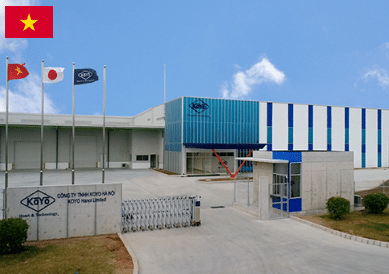
Introduction:
Bearing size and adaptability are critical considerations in various industries, where precision and compatibility with machinery are essential. KOYO and NACHI, two renowned bearing manufacturers, offer a wide range of bearings that vary in size and adaptability to meet the diverse needs of industrial applications. This article provides a comprehensive comparison of KOYO and NACHI bearings, focusing on their size range and adaptability, emphasizing their performance, customization options, and versatility.
- Size Range:
KOYO Bearings:
KOYO offers a comprehensive range of bearing sizes, from miniature bearings suitable for delicate instruments to large bearings capable of handling heavy loads in industrial machinery. Their extensive size range caters to a wide array of applications.
NACHI Bearings:
NACHI provides a diverse selection of bearing sizes, covering various industrial needs. Their range includes miniature and extra-large bearings, ensuring compatibility with different machinery sizes.
- Load Capacity and Application Suitability:
KOYO Bearings:
KOYO’s bearing portfolio includes products optimized for various load types, including radial, axial, and combination loads. Their adaptability makes them suitable for a wide range of applications, from automotive to heavy industry.
NACHI Bearings:
NACHI’s bearings are engineered to handle different types of loads efficiently. They offer adaptability to meet the requirements of applications in diverse industries, such as agriculture, construction, and robotics.
- Customization Options:
KOYO Bearings:
KOYO provides customization options for specific applications, including special coatings, seals, and precision levels. This adaptability allows for bearings tailored to unique requirements.
NACHI Bearings:
NACHI offers customization services to meet the specialized needs of customers. These options may include various materials, clearance levels, and lubrication choices, ensuring a perfect fit for specific applications.
- Precision Engineering:
KOYO Bearings:
KOYO emphasizes precision engineering in their bearing manufacturing process. This focus on accuracy ensures that their bearings fit precisely, reducing the risk of misalignment and premature wear.
NACHI Bearings:
NACHI’s commitment to precision engineering contributes to the reliability and adaptability of their bearings. Their attention to detail ensures that bearings perform consistently across a wide range of applications.
- Environmental Responsibility:
Both manufacturers prioritize environmentally responsible manufacturing practices, contributing to reduced environmental impact and sustainable production methods.
Conclusion:
Bearing size and adaptability are crucial factors in selecting the right bearings for machinery and equipment. KOYO and NACHI bearings have demonstrated their capabilities in providing a wide range of options that meet the diverse needs of industries.
The choice between KOYO and NACHI bearings should consider factors such as bearing size requirements, load capacity, customization options, and precision engineering. Both manufacturers prioritize performance, versatility, and reliability, making them trusted choices for industries where bearing size and adaptability are critical.
Ultimately, the goal is to select the bearing that offers the best combination of size range, adaptability, and customization options, ensuring that machinery and equipment operate reliably, efficiently, and with minimal maintenance, thus optimizing overall productivity and cost-effectiveness.
